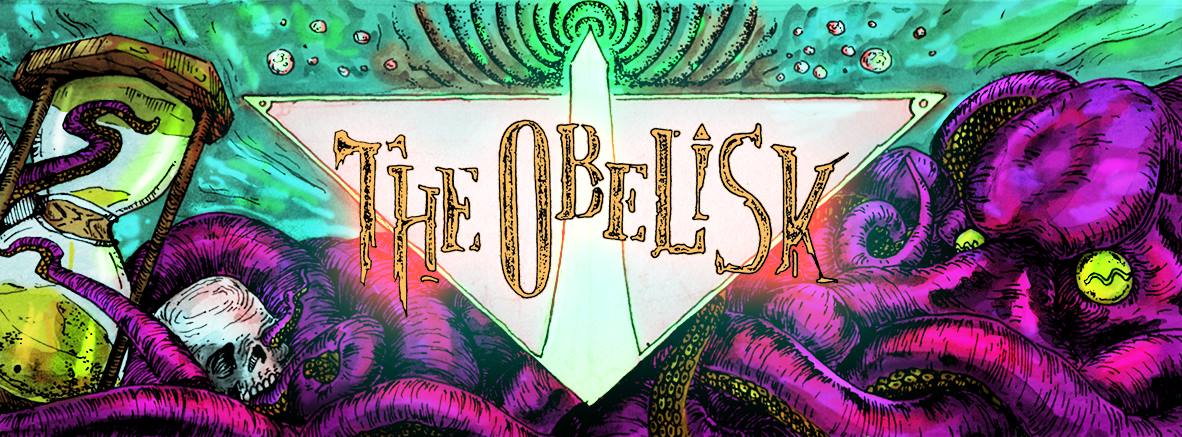Colour Haze, Ewige Blumenkraft: A More than Slight Return
Because it’s the issue at hand and the record on which German heavy psych innovators Colour Haze have chosen to focus on at the moment by reissuing it through guitarist/vocalist Stefan Koglek‘s Elektrohasch Schallplatten on CD and limited 2LP, the temptation is strong to read 2002’s Ewige Blumenkraft as a major turning point for the band or a stylistic landmark in their development. In truth, that turn came two album’s prior with their third outing, 1999’s Periscope, which departed from the brooding noise rock of their 1995 Chopping Machine debut (discussed here) and the Tool-influenced prog metal of the subsequent self-release, Seven (the Great White Whale of my CD collection; someday I’ll own a copy and gaze upon it with pride for the remainder of my days), in favor of the tonally rich desert atmosphere they’ve spent the last 15 years developing and making their own, serving as a chief influence for European heavy psychedelia and underground heavy rock along the way. If nothing else, Ewige Blumenkraft, taken in the context of its original 2002 release on Monster Zero Records, showcases just how pivotal Colour Haze have been to the last decade-plus in the European scene. It’s a cliche to say about a reissue, but if this CD came in the mail as a brand new release today, I might say it was influenced by Colour Haze, but there’s no way in hell I’d call it dated.
So why reissue Ewige Blumenkraft? Colour Haze have never seemed the type to feed their egos — I won’t argue against a penchant for musical self-indulgence; they’re jammers at heart and even this earlier work is 74 minutes long, so that kind of thing is inevitable if justified by the material itself — so it hardly seems like a, “Check us out, we were here first” kind of situation. More likely it’s just that Ewige Blumenkraft has been out of print for some time, which, speaking as a fan of the band, is enough excuse for me. In the 12 years since it first surfaced, a new generation of heavy rockers has come of age and for them, the chance to revisit an album like this on vinyl would be like discovering the language from which your own was derived. By 2002, Koglek, bassist Philipp Rasthofer and drummer Manfred Merwald had solidified as a formidable, dynamic trio with their own sonic character, not quite as exploratory as they’d become starting with 2003’s Los Sounds de Krauts and moving up through 2004’s Colour Haze and 2006’s Tempel en route to the mature, masterful approach they’d show on their most recent outings, 2008’s All and 2012’s She Said (review here), but not far off. In the charming stoner straightforwardness of “Freakshow,” they set a lighthearted tone for Ewige Blumenkraft and the roots of nearly everything they’d accomplish in the 10 years that followed can be heard throughout the rest of the 10 tracks included here.
That’s especially true on the longer songs, whether it’s “House of Rushammon,” which was redone from its original appearance on Seven, the Buffalo cover “Freedom,” “Smile 2” and “Smile 1” or the sprawling 19-minute closer “Elektrohasch,” which stands as an achievement no less staggering than Colour Haze‘s other longest-form highlights, the 18-minute “Weltraummantra” from Los Sounds de Krauts or the 22-minute “Peace, Brothers and Sisters!” from the self-titled, the All title-track (somewhat shorter at 14 minutes) or that from She Said, which rolled fluidly over 18 minutes. On these songs, Koglek, Rastohofer and Merwald are their most immersive; the rhythmic intricacies, deft turns, and Hendrixian tonality is in full bloom on Ewige Blumenkraft, even if it’s not as developed or as serene as it would later become, and the character of the record comes from how well the expanse plays off shorter rockers like “Almost Gone,” “Reefer” and “Goddess,” which display a predilection for hooks that Colour Haze have since incorporated to their jammier sensibilities. A peaceful bass opening to the linear build of “Outside” and the swaggering payoff of “Smile 1” provide a middle ground between both facets, and Ewige Blumenkraft ends up teaching a lesson about how to be heavy without being aggressive that clearly many in their wake have taken to heart, and for the better.
Recorded digitally in the band’s practice space and mixed by Tim Höfer, who also played drums from 1994-1997, the reissue was analog remastered in the studio Colour Haze built for themselves prior to She Said and sounds natural and full and bright in the spirit of Colour Haze‘s work since, which, though I know I’ve said it many times, is probably the single most important stretch of output by a European band in the last 15 years. If you’ve never heard Ewige Blumenkraft, if maybe you came later to Colour Haze — I know a lot of people got on board with the self-titled, which was their first release solely through Elektrohasch after putting out Los Sounds de Krauts in conjunction with Nasoni — then what you’re getting with this full-length is the chance to hear an essential piece of how that band came to be what they are. That sounds academic, and I suppose part of the appeal of any reissue worth a damn is bound to be academic, but at its heart, Ewige Blumenkraft is essential listening for what Colour Haze had done and would do, and also for how well it stands on its own within their catalog. Whether you’re approaching it for the crucial period stoner rock of “Freakshow,” “Reefer” and “Almost Gone,” the budding heavy psychedelia of “House of Rushammon” and “Elektrohasch,” or simply how well the various sides of Colour Haze‘s sound meshed even at that point, there’s really no way to lose out. Though it hasn’t been in print for a number of years, Ewige Blumenkraft seems to have lost none of its potency for age.






